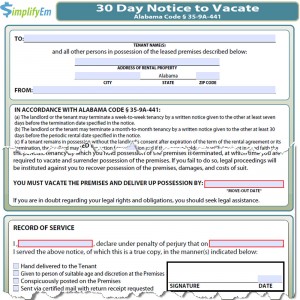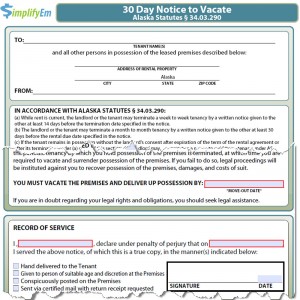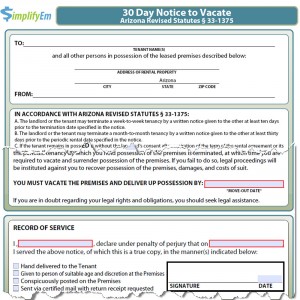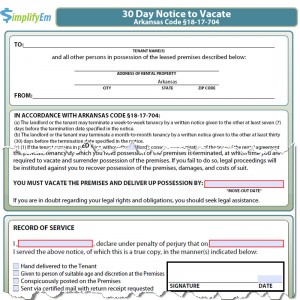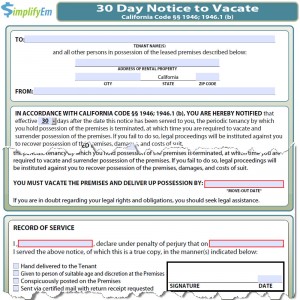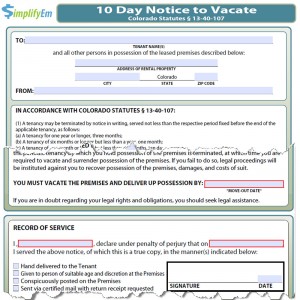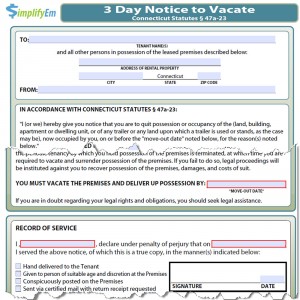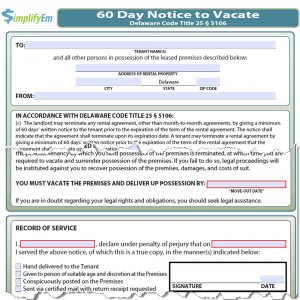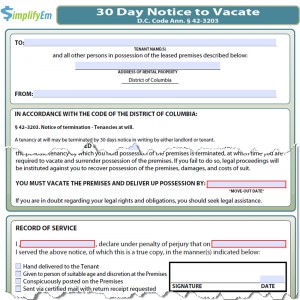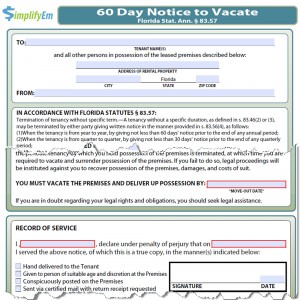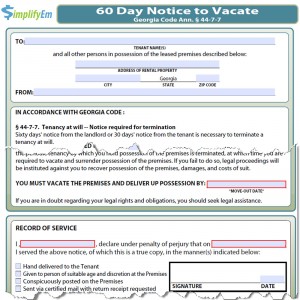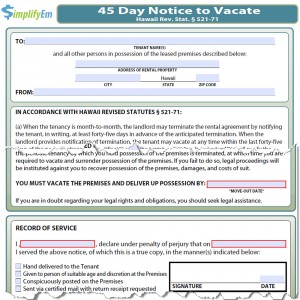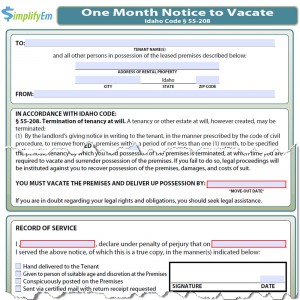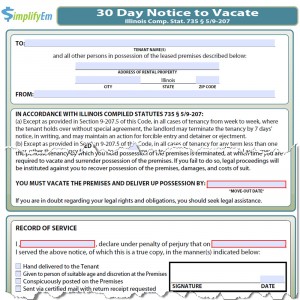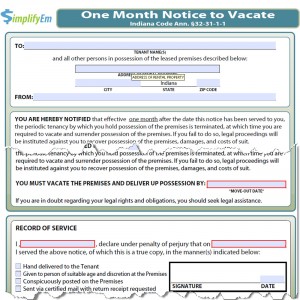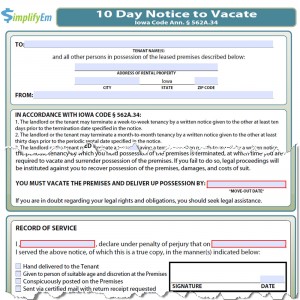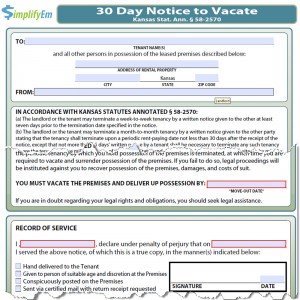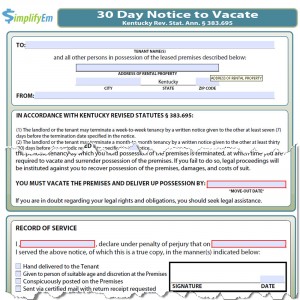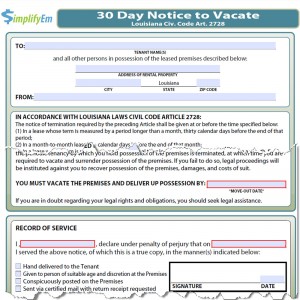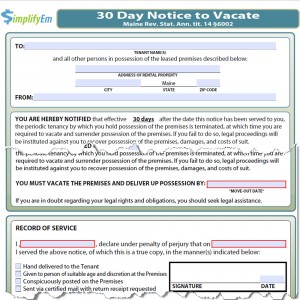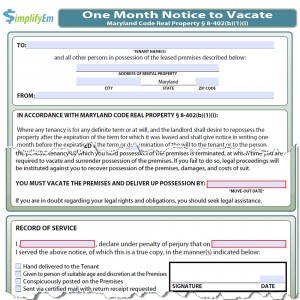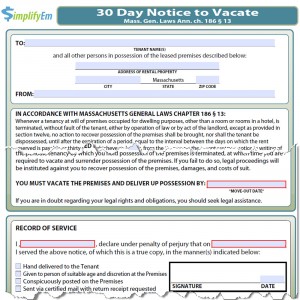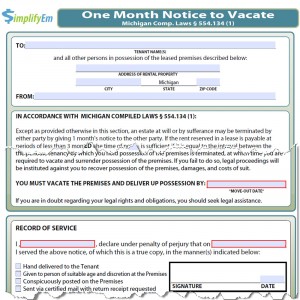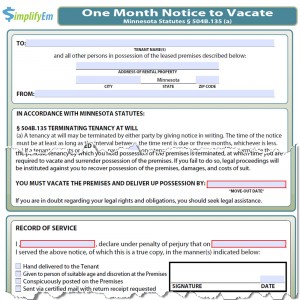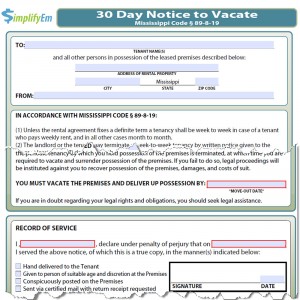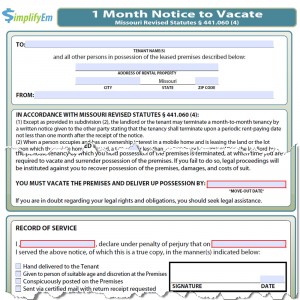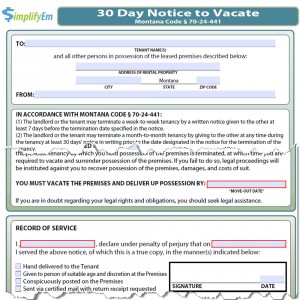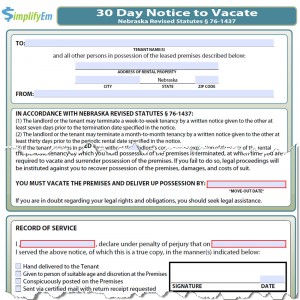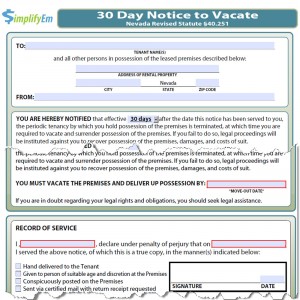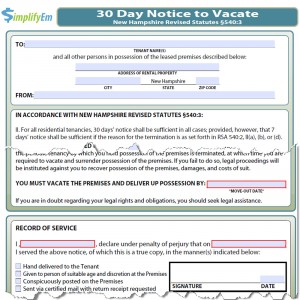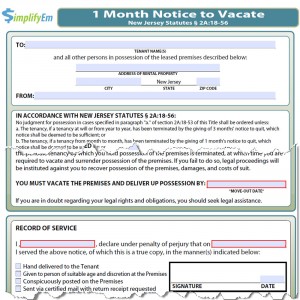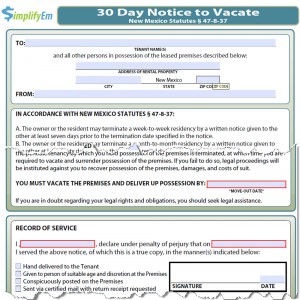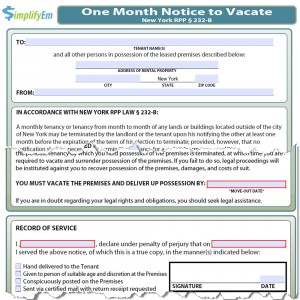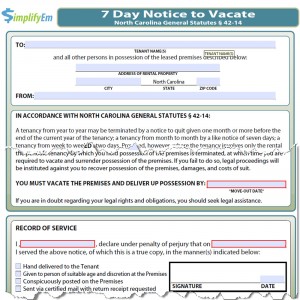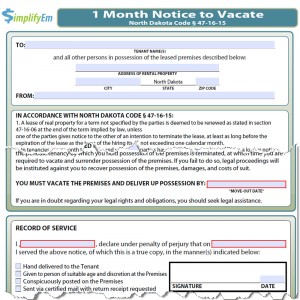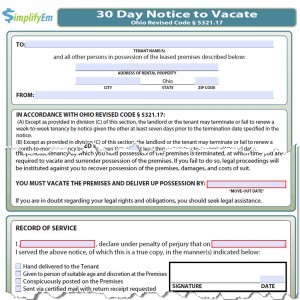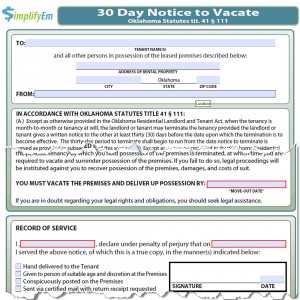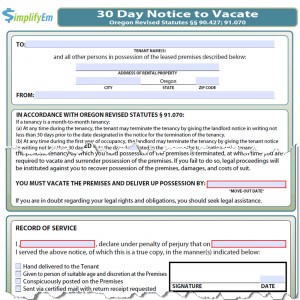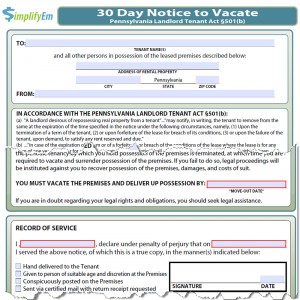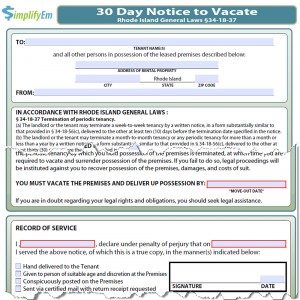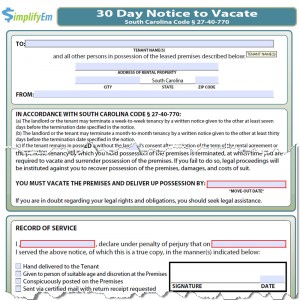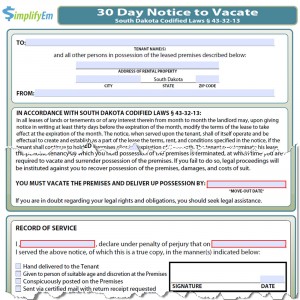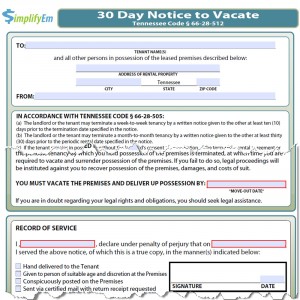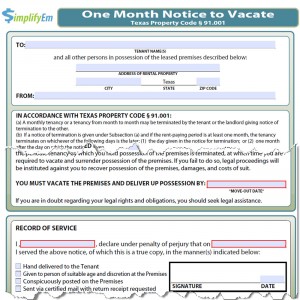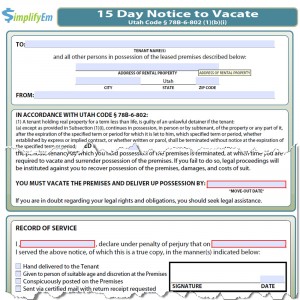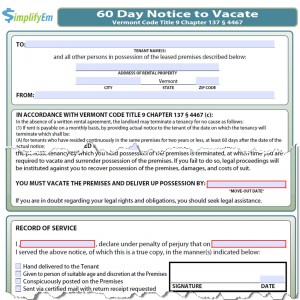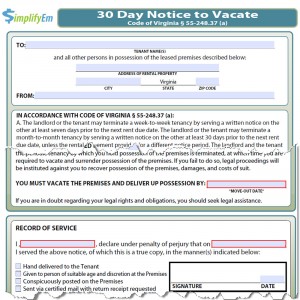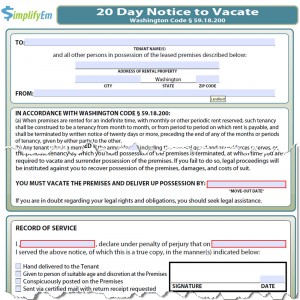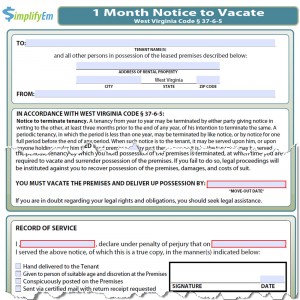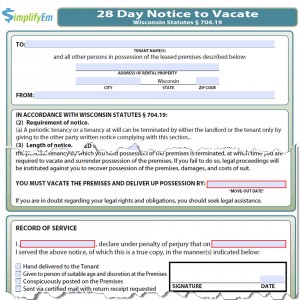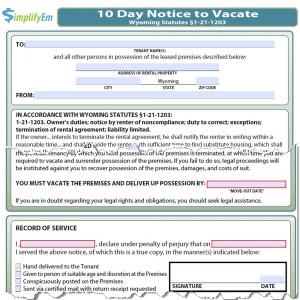Landlord Notice to Vacate - Why is it important?
The Landlord Notice to Vacate Form is used to communicate that the rental property should be vacated, possessions should be removed, and keys should be returned by a certain date. If the Notice to Vacate is ignored by the tenant, you may be forced to take legal action to have the tenant removed from the property. Once the move out date in the Notice to Vacate has passed, you could possibly bring forth a lawsuit for "unlawful detainer" (also known as Eviction), in which case the tenant could potentially fight the eviction in court.
- Landlord Notice to Vacate notifies tenants that they must vacate the premises and remove all of their possessions
- 30 Day Notice to Vacate is typically required in Lease Agreements for fixed-term tenancies
- 30 Day Notice to Vacate is required in most states for month-to-month tenancies
- Giving a Notice to Vacate is one of the first steps you can take before the eviction process.
Landlord Notice to Vacate - When should it be used?
Before the eviction process, when a landlord or property manager in wants a tenant to vacate the rental property at the end of the lease (or if there is no lease), they will use the Landlord Notice to Vacate Form. Notice to Vacate Forms should not be confused with Eviction Notices.
- Landlord Notice to Vacate can be used when a tenant's lease is ending
- Landlord Notice to Vacate can be used when a tenant has a month-to-month lease
- Landlord Notice to Vacate can be used when a tenant in hasn't left the rental property after the lease has expired or if the tenant doesn't have a lease.
Landlord Notice to Vacate - What should be included?
The Landlord Notice to Vacate Form must include the date the Notice to Vacate is given, and the amount of time a tenant has to vacate the property. Specific instructions must be clearly stated on the notice, so the tenant has reasonable awareness and can be held responsible for actions they must take. Here are some of the basic details that should be included:
- Name of tenant and other persons who must to vacate the property
- Address of rental property
- Reason for giving Notice to Vacate to the tenant
- Number of days the tenant has to vacate residential rental property
- Signature of landlord or property manager giving Notice to Vacate to tenant
- Proof that Notice to Vacate was given to Tenant
Landlord Notice to Vacate - What should I do with it?
The Landlord Notice to Vacate Form can be "served" to the tenant. In some states you can leave it at the rental property right on the front door, but in most cases it is better for you to have an independent party take two copies of the Landlord Notice to Vacate to the rental property, give one to the tenant in person, and get their signature on second copy so that you can retain for your records. If you are mailing the Landlord Notice to Vacate, you should send the Landlord Notice to Vacate Form using First Class Certified Mail and retain the receipt.
Landlord Notice to Vacate - What else should I know?
The Landlord Notice to Vacate is similar to the Notice to Quit for Termination of Tenancy, which can be used to inform tenants to leave after the lease is up, or if there is no lease and you just want the tenant to leave. The Landlord Notice to Vacate does not evict the tenant or terminate the Lease Agreement. If you want the tenant to vacate the property due to nonpayment of rent, or because they cause physical injury to the property or pose a health hazard, you should consider using a Notice to Quit instead. The Lease Termination Form might be more appropriate in other scenarios when there are other breaches in contract or if you need to void the Lease Agreement. It is important that these forms are detailed and specific, because an inaccurate or incomplete form could potentially cause difficulties during a future eviction proceeding.
After receiving the Notice to Vacate, the amount of time that must be given to to the tenant to vacate the property will vary by state, so you should be sure to check with the laws in your state. In most states, a 30 Day Notice to Vacate is sufficient if the tenant does not have a lease.
|
